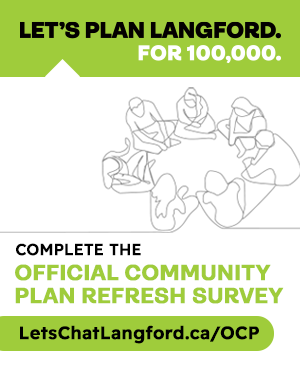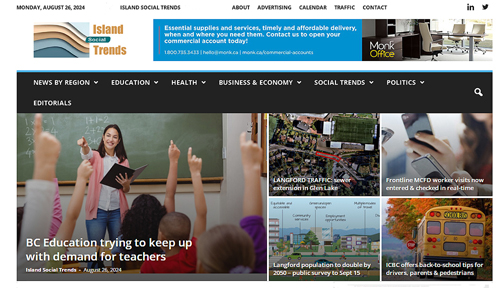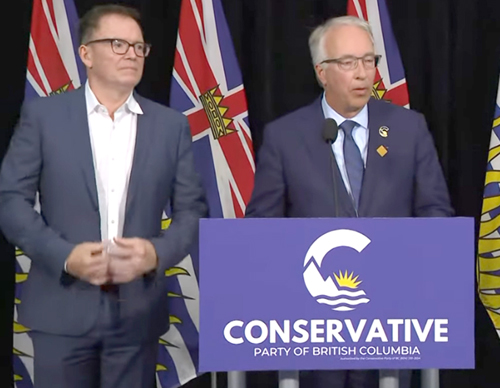
Wednesday August 28, 2024 | VICTORIA, BC [Posted at 11 pm | Last update 9:05 am August 29, 2024]
BC Election Political Analysis by Mary P Brooke | Island Social Trends
[See earlier post at 2 pm before the BC Conservative & BC Green media events]
Media had to wait until 3:08 pm for the confirmation of today’s news bomb released by the Conservative Party of BC (first slated for 2:45 pm).
At that time Conservative Party of BC Leader John Rustad first gave the floor to BC United Party Leader Kevin Falcon, to start things off.

“Politics for me has always been about doing what is best in the interests of British Columbians,” said Falcon, setting in motion one of the largest shifts in BC politics in almost a decade. “I’ve spent my entire adult life fighting not only the NDP and their brand of left-wing socialism but also fighting to unite the centre-right. I did that in the 90s when we were trying to bring together the provincial Reform Party and the BC Conservative Party at the time, to coalesce together under the BC Liberal Party,” said Falcon.
“And now it’s the BC United Party again, the name is about trying to unite people,” said Falcon in his opening remarks.
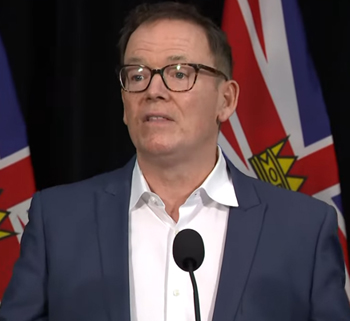
“But what became apparent to me as I crisscrossed the province I heard from literally tens of thousands of people as the number one major concern that they had, and that is Kevin, if you guys don’t do the right thing and be the adults in the room, and help bring together that free enterprise centre-right coalition, you are going to help elect an NDP government,” said Falcon.
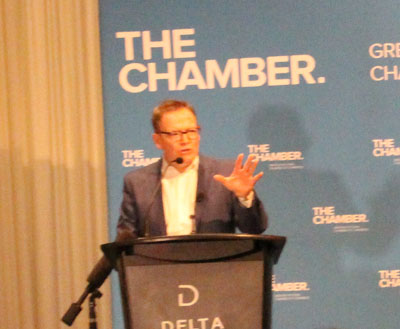
“And all of you who know me, know that there is nothing more important to me, my children and your children and grandchildren, that we not give the NDP one more day in power than they absolutely have to have,” said Falcon. Any elected government must continue governing until the next election results either maintain them as government or a new government is elected.
As recently as June 6 when Falcon addressed the Greater Victoria Chamber of Commerce he coined a catchy phrase that caught on for a few days, saying that “British Columbians are mainstream, not extreme”. That was a clue to trying to hold on in the center-right lane for the BC United at that time.
Biggest change in decades:
This is a seismic change in BC politics. It was perhaps inevitable but is nonetheless coming as a major logistical shock to candidates and a generates a larger shock to the overall political scene as the election fast approaches.
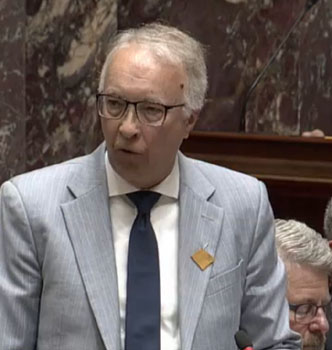
All the progress ‘for people’ as achieved over the past seven years is at stake if the BC NDP fail to maintain their strength as government in the October 19 election.
Rustad says he wants to do what’s right for people and the province, and curiously said today that it doesn’t matter what party does that, even the Greens. That’s a politician trying to take the sting out of the fact that the center-right is surging forward. Actions trump words here.
Compare to 2017:
While it happened after an election (not before), nearly as significant a political shift in the overall political landscape was in mid-2017 when then NDP Party Leader John Horgan machinated a way to form government using a Supply and Confidence Agreement. In one fell swoop that relegated the BC Liberals into Opposition after 16 years as government and showing then-Premier Christy Clark the door.
Let’s footnote that the final declaraton for Horgan to form government in 2017 was the decision of then Lieutenant Governor Judith Guichon (just in case anyone thinks the LG is just a figurehead).
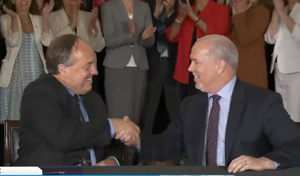
What’s different today is that an entire political party — the previous BC Liberals (which underwent a name change last year to BC United Party) has disappeared off the election scene just ahead of a provincial election. Among other things, this leaves a very short time for voters to know their candidates; voting for the party ahead of candidate would result for many voters under this scenario.
The BC United had not been getting traction on any key issues over the past few months; any notable messaging essentially evaporated upon release.
Now much more of a two-way race:
The new election campaign paradigm for voters to grapple with on election day on October 19 — just 52 days away — is back to more of a two-way race than has been seen in recent months.
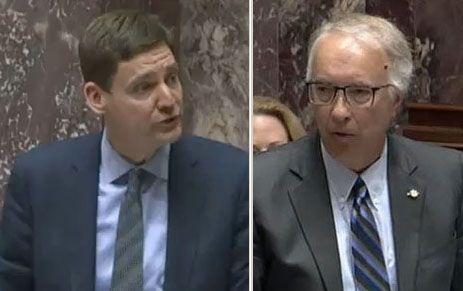
The scenario that has now emerged will certainly focus on the political fistfight between the BC NDP who have led government since July 2017 (with David Eby as premier since December 2022) and the BC Conservatives who essentially came out of nowhere in the past year.
Rustad is a former BC Liberal cabinet minister but he seems to have shed that mark in the public realm.
Personable politics wins:
Politics is a people business (at least at the campaign phase), and voters over the last year will have sensed the core differences between the two right-leaning leaders. When politicians get into the business of elected office only to have power for its own sake, that eventually does become evident. Nowadays, power-first is not the welcoming trend in society though it might still work in the first-past-the-post electoral system.
Between the two men, Rustad is far more personable and can readily connect with people. Falcon is long-experienced as a former BC Liberal cabinet minster but as BC United leader never seems to have shelved his business-first edge and overall doesn’t seem to truly enjoy people for who they are.
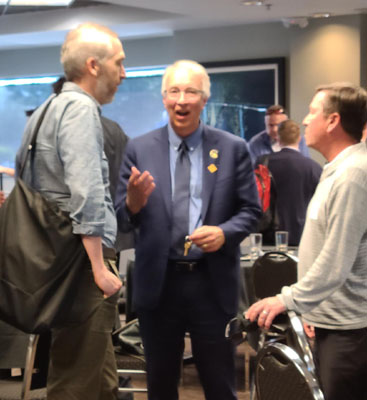
As BC Green leader Sonia Furtsenau said that week about election campaigns at the door step in communities, it’s about the feeling that you leave with people as much as about explaining or debating the issues.
In that context, Rustad is the clear winner to represent the right compared to Falcon. Given that, taking Falcon at his word today that he ultimately cares most about ‘not having an NDP government in BC’ means he made the right decision not to run, and to cut loose all his candidates (though some will be recollected under the BC Conservative banner).
Rustad is not center-right. He leans to some more extreme right views including challenging the evidence on climate change. He appeals to skeptics of modernity, including speaking ‘common sense’ to people who want their children shielded from gender ideology (a voter base he’s sure to find loyal).
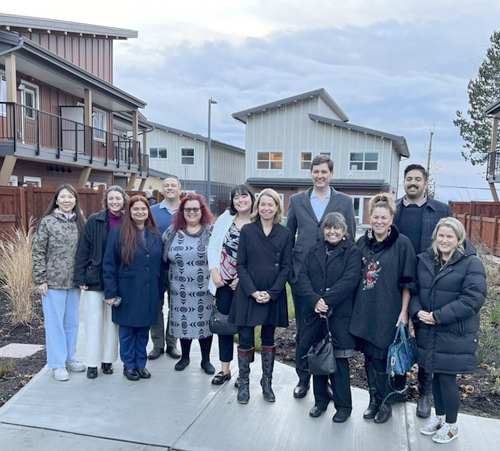
Premier Eby enjoys championing for people through the works of law and legislation. He has been building a reputation for lobbing out a joke at the beginning of every press conference. He has people at heart, which is ideal for maintaining the loyal NDP voter base.
Who loses their chance:
Nomination papers for BC United Party candidates will be withdrawn from Elections BC, Falcon said in today’s press session.
Some BC United candidates will be left without a lifeline, especially if they’re new to provincial politics; they won’t be the asset that the now consolidation-of-the-right wants and needs in order to win the election and form government.
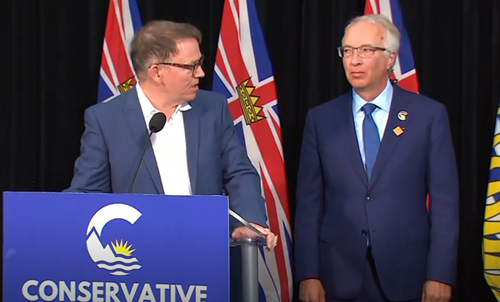
Locally here on south Vancouver Island the forced drop-outs likely include Herb Haldane who now won’t be running in Juan de Fuca-Malahat, Meagan Brame who now won’t be running in Esquimalt-Colwood, and Sean Flynn won’t be running in Langford-Highlands. Brame could shift to BC Conservative, but for Haldane and Flynn the Conservative slot is already taken in their respective ridings.
Evidently some long-time BC Liberal cabinet ministers including Shirley Bond and Todd Stone aren’t being asked to run at all; while successful at the MLA thing, their style might now belong to days of olde and their name more difficult to connect up with for younger voters.
Meanwhile, Peter Milobar (who served as the BC United finance critic in the most recent session) will be asked to stay on and run now as a BC Conservative; he probably has a strong grip on the budget file.
Who gets a second chance, topping the roster to 93:
Today Rustad said that he will essentially handpick the best now-former BC United candidates to join his team. Until today the BC Conservatives have had 83 candidates (including Rustad); now they will easily reach 93 in order to cover all the ridings across BC.
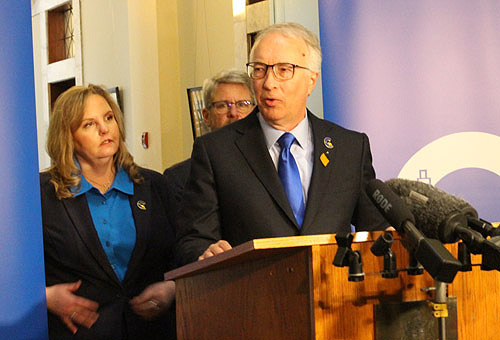
Some disgruntled now-former BC United candidates might choose to run as independents, which could siphon votes away from the BC Conservatives.
People who don’t want either big-politics teams to win may choose BC Green candidates with more confidence than they may have before.
Two heavy hitters:
That certainly means the key election race is between the two heavy hitters: BC NDP led by Premier David Eby and the now-boosted Conservative Party of BC led by John Rustad.
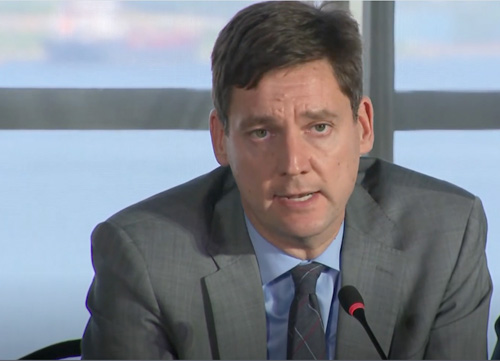
Eby has the sharper more modern mind but Rustad has the folksy appeal needed for attracting rural voters and those who just want to get ‘back to the olden days’.
Eby hasn’t been afraid to speak up against the Bank of Canada about the impact of interest rates on regular folks while Rustad would aim to return to the ‘free enterprise’ approach which allows chips to fall where they may.
Falcon admitted that the BC United Party is ‘out of the race’ for this election cycle. But he isn’t disappearing. He says he’ll help ensure that the best of BC United gets shifted over into the BC Conservative camp.
About those Greens:
Not expecting to form government but hoping to make an impact on the electorate as a progressive choice, the BC Greens will actually now have a better chance to succeed in some key electoral areas.
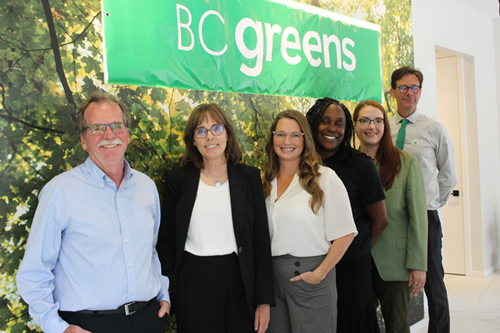
Up to this point the BC Greens and BC NDP might have both been viewed by many voters as progressive or left.
Now that the NDP will need to be firmly seen as center-left in order to win government again, the BC Greens can now more clearly run in the progressive lane. Much of the BC Green policy is scientifically-based and data-driven compared to the ideological left that the NDP brand leans to.
This rejigging of political lanes (at least in the public view) suits the Greens just fin. The Greens will be pleased with even just three or four MLAs elected on October 19.
Even with two MLAs in the last parliament (Sonia Furstenau and Adam Olsen) the BC Greens were the official third party in the BC Legislative Assembly and arguably proved themselves as the conscience of the legislature on many important issues (e.g. environment, Indigenous issues, and the operations of the Ministry of Children and Family Development).
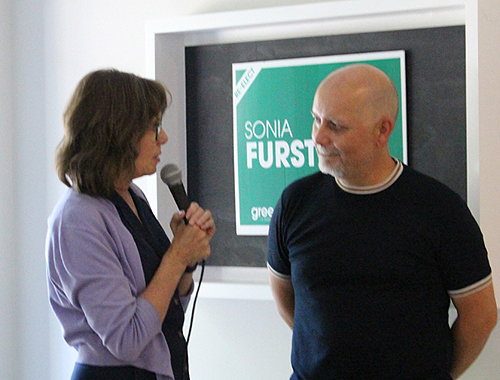
Olsen is not running again (he’s now BC Green Party campaign co-chair). Furstenau has set herself up for a tough fight in Victoria-Beacon Hill against BC NDP cabinet minister Grace Lore. So, overall these are still shaky times for the BC Greens.
Furstenau is battling against the two-party system “where each of the parties defines themselves as the opposite of the other, where each party tells the public to be afraid of the other,” she said today in a press session at BC Greens headquarters in downtown Victoria.
Furstenau says the BC Greens are aiming for a province where “people no longer have to feel insecurity or fear”.
The Greens are clearly counting on their strongest candidates to pull the party forward for the next four years. That list likely includes:
- Jeremy Valeriote (West Vancouver-Sea to Sky) who very nearly won in 2020;
- Christina Winter in Victoria-Swan Lake (a riding that outgoing NDP MLA Rob Fleming has left open and vulnerable);
- David Evans in Juan de Fuca-Malahat who has evolved from business man to polished politician and has an insightful grip on the Sooke mentality;
- Camille Currie will make a big impression in Esquimalt-Colwood but she’s up against a formidable force in current MLA Mitzi Dean (currently Minister of State for Child Care and a champion of the west shore region).
- Rob Botterell has a good chance in Saanich North and the Islands.
- Ned Taylor is a strong candidate but will be up against powerhouse MLA and cabinet minister Lana Popham in Saanich South.
- Dr Lisa Gunderson is a party favourite running in Oak Bay-Gordon Head and might just manage an edge over the BC NDP’s candidate Diana Gibson who is a community social planner, policy advisor, and entrepreneur.

BC NDP will have to work harder:
For the BC NDP this must be a joyous victory, as in seeing, for now, the former BC Liberals cleared right off the political map.
This brings some ultimate grace to the long fight that John Horgan led from back in 2005 when he was first elected as an MLA; his passing the torch to now Premier David Eby continued a lit flame for the progressive NDP movement.
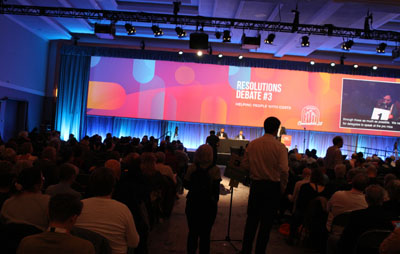
But the BC NDP joy will probably be ephemeral. When they land hard tomorrow — ‘the morning after’ — the BC NDP will have to come to terms with a strengthened competitor in the BC Conservatives, leaving no room for complacency.
The BC NDP will have to further strengthen their game to counter the ‘momentum for change’ that seems to be pulsing for the electorate in this election cycle. ‘People first’ may no longer be enough. Something for the more economically-driven voter will need to be injected into the BC NDP campaign, and fast.
Much to be proud of:
The BC NDP has a lot to be proud of in their accomplishments over the past seven years.
Low-income people who used to have to pay MSP premiums at the same rate as people with very high incomes are likely still grateful about premiums being eliminated from their monthly expenses. Under the BC Liberals, if people fell behind on MSP payments the BC government paid a US corporation to hunt them down with a roughhouse bill-collector methodology — it was ugly stuff.

The former BC Liberals nearly demolished ICBC and turned a blind eye to money-laundering in casinos; Eby fixed all that (while he was still Attorney General in the Horgan government).
While Health Minister Adrian Dix’s work as the health minister has been extensive, he’s had a tough hill to climb in repairing what the BC Liberals allowed to falter. Dix has had to deal with building more hospitals, training more health-care workers, launching a new medical school, and dealing with international credentials for immigrant practitioners.
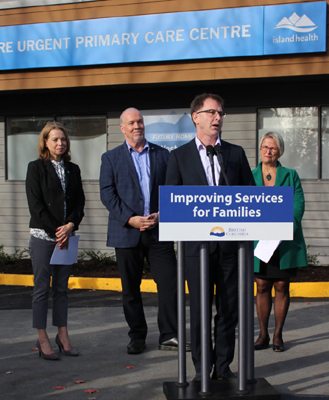
The NDP in starting a number of urgent primary care centers (UPCCs) around the province has — despite the faults and failings of UPCCs — achieved a far cry more toward getting health-care into the community than the BC Liberals ever accomplished. The BC Liberals took the family doctor business model as gospel and seemed oblivious to the declining number of doctors who either chose not to run a small business while practicing medicine or who were coming up for retirement (they briefly launched their GP for Me campaign in 2016, which miserably failed).
The BC NDP has improved long-term care standards across the province and they’re building more long-term care while at the same time working hard at trying to improve aging-in-place for seniors (to help them stay out of long-term care as long as possible).
It’s fair to criticize the BC Liberals:
And while housing is indeed more costly nowadays (home ownership or rent), that actually is a powerful residual effect from the BC Liberals during 2001-2017 when almost no affordable housing was built (as well as allowing the overall global economy to favour the well-to-do). During the BC Liberal years the economy was a runaway lottery-win for those with means while everyone else fell behind.
And let’s not forget the closure of school libraries in the mid-2000’s and the contract pressure on teachers under Christy Clark’s government. Many children got a substandard education during those years, something that will reverberate for at least one generation if not two.
Mental health strain for youth skyrocketed under the BC Liberal government. Mental health is rooted in a sense of belonging and stability. Under the BC Liberals’ tough-business approach coupled with lackluster education (no reflection on teachers) and parents being under extreme duress as household incomes strained or buckled with household debt, it’s unsurprising that young adults in BC are feeling capsized off the boat and feeling bitter.
Touting their housing policy could help the BC NDP, if done right:
The BC NDP is not so good at articulating their successes to the public between elections. They tend to dislike bragging about legitimate achievements. If they plan on winning on October 19 they will now have to do better at making their successes sparkle in the eyes of voters.
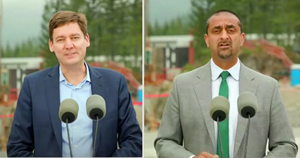
Especially with the equivalent of a chronic infection in the eyes of many voters — in believing that the BC NDP has pushed up the cost of housing — in fact their wide-ranging galaxy of housing legislation has set in motion some changes that will take root over the coming years to put people into homes. The BC NDP articulates that housing should not be (only) an investment vehicle, but a roof over one’s head.
Changes in housing over the coming years will help shift homeownership to being within reach of more people (e.g. by allowing multi-plex developments on single family lots, putting up high-density apartments near high-traffic routes, utilizing land that is available through non-profits and organizations through their BC Builds program, and working collaboratively with the federal government to encourage more housing on federal land including recently the DND base at Esquimalt).
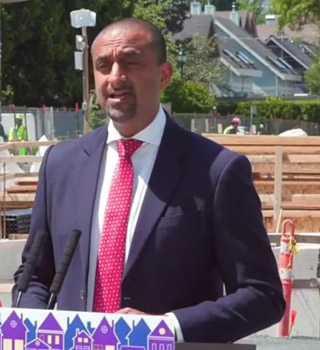
Back in July, Eby said that housing is a top election issue.
It’s actually quite miraculous that thousands of housing units (mostly condos and apartments but also some full family-size homes) were made available ‘overnight’ by disallowing short-term rental of those properties. Talk about ‘instant housing supply’.
People say they want housing to be attainable and affordable. The suite of changes that the NDP brought in are being painted by some municipalities and others as heavy-handed. But the creativity shown by the BC NDP around housing can be a jewel in their election cap if they show it off in easy-to-understand ways and appease those voters who think that housing (i.e a roof over one’s head) is only about asset-ownership.
===== RELATED:
- BC United Party collapse expected following BC Conservative leader announcement by John Rustad Aug 28 (August 28, 2024)
- Rob Fleming leaves open game for Victoria-Swan Lake in election 2024 (August 18, 2024)
- New housing coming to DND base in Esquimalt (August 17, 2024)
- Government’s job is to keep running the province (June 18, 2024)
- BC United name change could be its failing (May 21, 2024)
- Another step for BC Builds: builders portal (April 29, 2024)
- $2 billion federal backing for BC Builds (February 20, 2024)
- BC describes BC Builds rental construction program as non-traditional (February 19, 2024)
- Province launches BC Builds to address lower-cost middle-income rental homes (February 13, 2024)
- NEWS SECTIONS: BUSINESS & ECONOMY | HOUSING | BC PROVINCIAL ELECTION 2024




